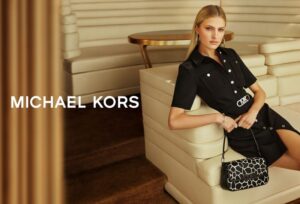Yes, Michael Kors is considered a luxury brand. It has positioned itself as a leader in the luxury fashion market, offering high-quality products such as handbags, accessories, and clothing. The brand is known for its sophisticated and elegant designs, which appeal to a wide audience. Michael Kors has over 1,200 stores in 90 countries, showcasing its global presence and commitment to luxury. The brand’s marketing strategy includes targeted ads, influencer partnerships, and digital campaigns, all aimed at maintaining its luxury status. Additionally, Michael Kors has a strong focus on “accessible luxury,” making its products attractive to both high-end consumers and those seeking premium fashion at more affordable prices. This positioning has helped the brand compete effectively in the luxury market and expand its customer base.

How does Michael Kors balance luxury with affordability?
Michael Kors balances luxury with affordability through a multi-faceted strategy that includes:
1. Premium Pricing for Core Collection:
– Michael Kors offers high-end products in its core collection, which includes luxury handbags and exclusive accessories. These items are priced to compete with other luxury brands like Gucci and Louis Vuitton, targeting affluent consumers who are willing to pay a premium for exclusive, high-quality products.
2. Affordable Luxury through Diffusion Lines:
– The introduction of the MICHAEL Michael Kors line in 2004 was a strategic move to offer stylish products at more approachable price points. This line targets a younger, more price-sensitive audience while maintaining the brand’s luxurious appeal. By providing a range of products at varying price levels, Michael Kors appeals to a broader consumer base.
3. Dynamic Pricing Model:
– Michael Kors employs a dynamic pricing model in its e-commerce operations, allowing it to adjust prices based on real-time demand and inventory levels. This strategy enhances the brand’s ability to manage inventory effectively and respond to market changes, ensuring that products remain accessible while maintaining profitability.
4. Psychological Pricing Techniques:
– The brand utilizes psychological pricing techniques, such as setting prices just below rounded numbers (e.g., $99.99 instead of $100), to create a perception of value and entice customers.
5. Omnichannel Retail Strategy:
– Michael Kors has invested in both brick-and-mortar stores and e-commerce platforms to ensure that its products are accessible to a wide range of customers. This strategy includes a strong online presence and a network of flagship stores and department store partnerships. The brand’s e-commerce platform is user-friendly and visually engaging, making it easy for customers to browse and purchase products online.
6. Targeted Marketing and Influencer Partnerships:
– Michael Kors leverages high-profile endorsements and influencer marketing to reach a diverse audience. By collaborating with celebrities and influencers on platforms like Instagram and TikTok, the brand generates buzz and excitement around new product launches, making its products more appealing to a broader audience.
7. Customer Loyalty Programs:
– To foster long-lasting relationships and encourage repeat purchases, Michael Kors places a strong emphasis on customer loyalty programs. These programs provide customers with exclusive benefits, rewards, and personalized experiences, enhancing customer engagement and loyalty.
8. Global Expansion and Localization:
– Michael Kors has focused on expanding its presence in emerging markets, particularly in Asia. By tailoring marketing strategies to align with local cultures and preferences, the brand has strengthened its global footprint and made its products more accessible to a wider audience.
By combining these strategies, Michael Kors successfully maintains its luxury brand image while offering products at various price points, making luxury accessible to a broader audience.

